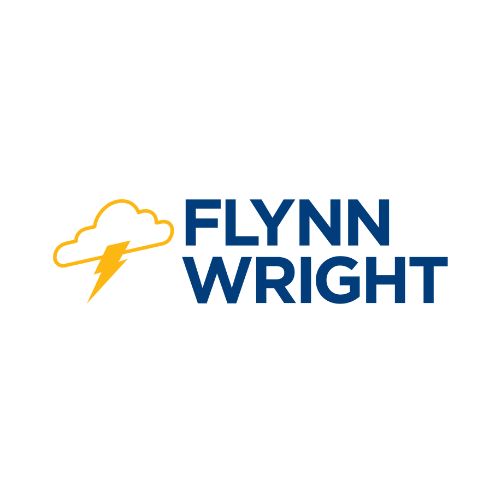Harnessing the Energy

Jerry Crawford sat nervously at courtside.
About 90 minutes remained before the team he owned, the Iowa Energy, took the floor for the second game of the best-of-three NBA Developmental League (NBADL) finals.
In between fielding media requests and making sure things were in tip-top shape for the franchise’s first championship appearance at Wells Fargo Arena, Crawford was watching for the first arrivals of what he expected to be a near-sellout.
He was hoping first-time attendees would be hooked by a style of basketball that resembles that of the NBA. He was hoping that team members would get to fulfill their championship dreams, just four years after he was able to fulfill his dream of becoming a team owner.
“It’s pretty cool – it’s little boy stuff,” said Crawford, who witnessed his team in the finals nearly a year to the day after watching his horse, Paddy O’Prado, race in the Kentucky Derby.
As it turned out, the real victory came two nights later, as the Energy wrapped up the championship with a Game 3 win over the Rio Grande Valley Vipers. It was a win in more ways than one; besides the team winning the trophy, fans followed up an NBADL record attendance of 14,036 in the Game 2 loss with a crowd of 9,034 fans in the capper, the second-largest attendance in league history. By the owner’s estimation, the fans who came back Friday and boisterously cheered on the team in the fourth quarter deserved credit for the win.
“It was very gratifying to see the community rally around (the Energy) that way,” Crawford said.
The franchise has been pleased with its attendance numbers so far, and now holds the top three most-attended games in league history.
A championship run, though, has officials anticipating a potential jump-start for the franchise from a branding and ticket-sales perspective, that could build on the franchise’s sustainability.
Crawford is hoping for up to 1,000 more season-ticket holders and up to 2,000 more fans per game in the arena next year.
“Winning the title will catapult our brand development ahead several years,” said Energy General Manager Chris Makris via email from Greece last week. (Makris was celebrating his honeymoon after getting married in November.) “What the championship did for us was open the eyes of non-traditional fans who maybe had never been to an Energy game. When we opened the doors for Game 2 of the finals, and 14,000-plus fans poured in, we knew the marketplace had accepted us.”
Learning from others
The franchise has had the opportunity to learn from others in the area, both good and bad.
The good: The Iowa Cubs. Crawford called the I-Cubs the “gold standard” of sports franchises in Des Moines. The triple-A affiliate of the Chicago Cubs has been in Des Moines since 1969.
“Mostly I just watched them and copied everything I saw them do,” Crawford said.
Sam Bernabe, president, general manager and part-owner of the Iowa Cubs, sees many similarities between the Energy of today and the I-Cubs he joined 28 years ago. The big challenge for the I-Cubs was getting potential customers to view the game as not just a sporting event, but also an enjoyable night out – a concept Bernabe refers to as “teaching.”
“We spent most of the ’80s teaching people how to come to the stadium and the ballpark,” Bernabe said. “Once they got here, we had to teach them how to move around the park and how to go to the concession stand. It went from being a mom-and-pop (operation) and just a tie to the big leagues, to physically creating an entertainment entity in this town and an entertainment business coast-to-coast.”
The key to success, he said, was providing a safe, clean and fun environment in a consistent manner, thereby cultivating partnerships with the community and fans.
“We try not to make it very tough,” he said. “The consistency in game times, the consistency in ticket prices, the consistency in service, the consistency of the logo, the consistency of how we do our advertising – it’s pretty similar.”
The bad: The Iowa Chops. The American Hockey League (AHL) franchise the Energy shared a building with for two years. The Iowa Chops franchise ceased operations in Des Moines in 2009 amid a laundry list of problems (see sidebar).
Although the AHL and NBADL are similar in that both are the highest-level affiliates of major professional sports leagues in the United States, Energy officials focus on the franchises’ differences as reason to believe the Energy’s fate will differ.
The two key differences? The Energy is under local ownership; the Chops weren’t. And a hockey franchise costs more to maintain than a basketball franchise, due in large part to the high cost of maintaining the ice playing surface.
When the Chops folded, the franchise joined the Des Moines Dragons basketball team and the original Iowa Barnstormers Arena Football League team as defunct franchises in the market. From a perception standpoint, Makris acknowledged that the demise of other franchises hurt the Energy at first, but said he thinks fans have warmed to the product.

Bernabe of the Iowa Cubs said building consistency and brand loyalty took a long time for his franchise, and will take time for the Energy. That’s a sentiment that Makris, who was named general manager in 2008 at the age of 28, seems to understand. The Energy have focused on sustainable growth rather than just getting fans in the arena.
“By sustainable growth, we wanted to be trending upwards each year in terms of attendance, revenue and public perception,” he said. “Too often, new teams panic early and over-distribute complimentary tickets. We were adamant about not doing this. In the long run, protecting the value of your tickets, and making sure your fans don’t feel slighted, is the best way to build a franchise that will be here for a long, long time.”
The Energy expects to join the teams who have been successful in Des Moines, including the I-Cubs, Des Moines Buccaneers hockey team, Des Moines Menace soccer team and Iowa Barnstormers arena football team, which has averaged more than 9,000 fans per game since returning in 2008.
So far, so good. Crawford declined to release exact income numbers for the Energy, but said the franchise operated “well over six figures in the black this year,” and said the franchise has quintupled in value since its inception.
“It is just a product that was born for Des Moines, Iowa,” Crawford said.










